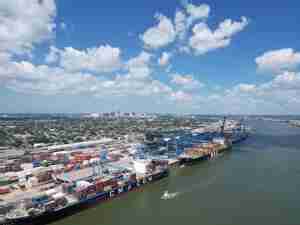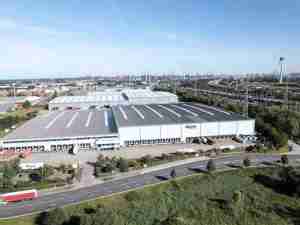With a unanimous 8-0 vote, the Council upheld the Long Beach Board of Harbor Commissioners’ August decision to approve the project’s environmental impact report. Construction is expected to begin as early as next year.
As of this week, the Port has learned that it will be able to secure all the funding necessary to construct the bridge, about $950 million. The Port had already secured about $636 million from various sources, including federal, state, and regional transportation funds. Recently the Long Beach Board of Harbor Commissioners approved $114 million of port funds in order to receive an additional $200 million from the state. State transportation officials have notified the Port that the California Transportation Commission (CTC) is expected to approve the funding plan at its early November 2010 meeting.
Also at the November CTC meeting, the Port and the state Department of Transportation (Caltrans) will be jointly requesting authority to seek bids from firms to design and build the new bridge — a bidding process that would speed the start of construction. As soon as the CTC gives its approval, the Port plans to issue a Request for Qualifications for Design/Build of the Gerald Desmond Bridge Replacement Project. The Port of Long Beach will oversee construction in partnership with Caltrans. When the new bridge is complete, the old structure will be taken down. The project will generate an average of 4,000 jobs per year during the expected five-to-six years of construction.
The Gerald Desmond Bridge is a vital route for cargo, carrying about 15 percent of the nation’s goods. It is also a critical link for commuters, who make up about 75 percent of bridge traffic. The bridge serves as a connection for thousands of vehicles each day between Long Beach and San Pedro, and between Orange County and western Los Angeles County.
The new bridge would have three traffic lanes plus emergency lanes in both directions, making it safer and better able to accommodate cars and trucks on a major Southern California commuting route. The new bridge would be higher to allow for the newest generation of green cargo ships to pass underneath.









